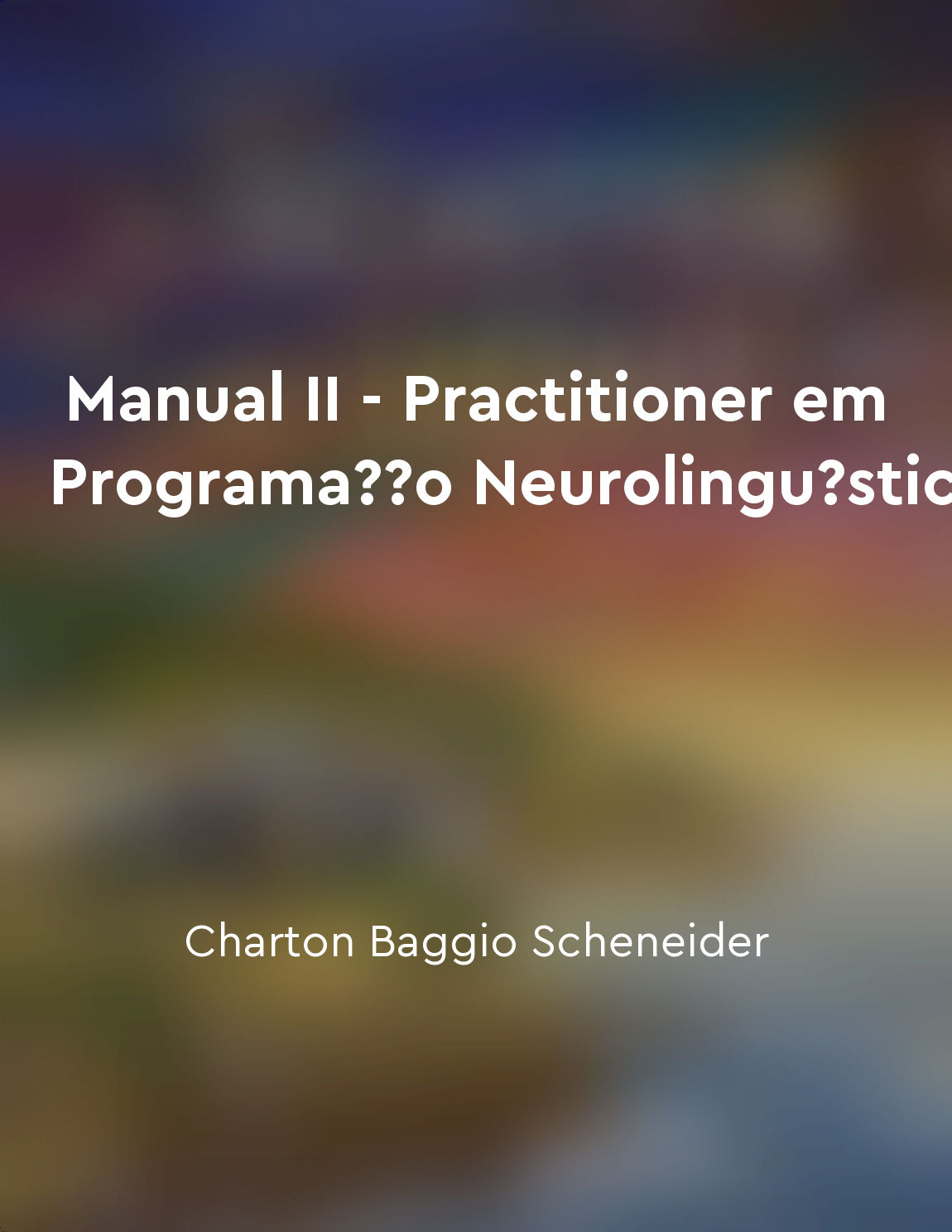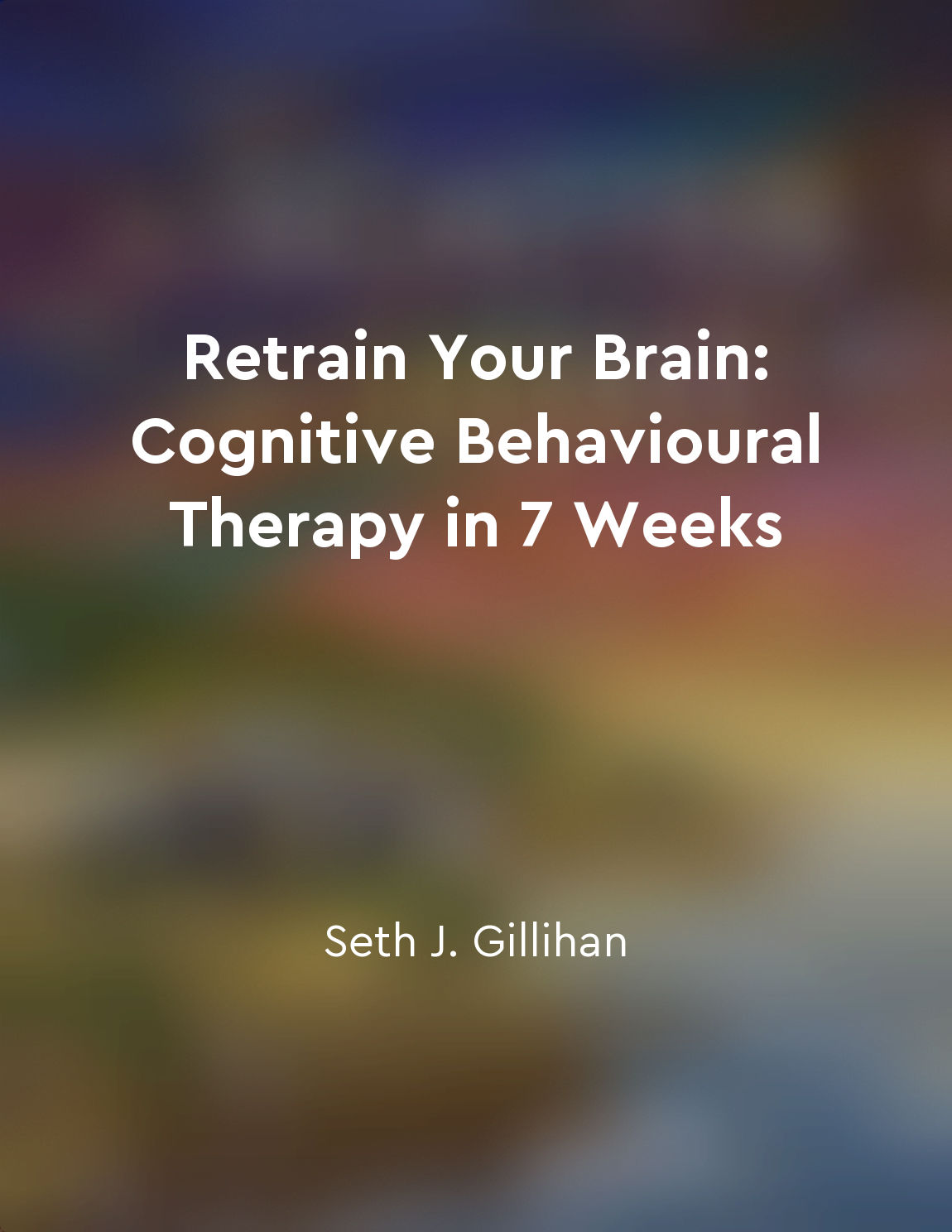Audio available in app
Cognitive therapy can effectively treat anxiety disorders from "summary" of Cognitive Therapy of Anxiety Disorders by David A. Clark,Aaron T. Beck
Cognitive therapy has been shown to be highly effective in treating anxiety disorders. This type of therapy focuses on changing the negative thought patterns and beliefs that contribute to anxiety symptoms. By helping individuals identify and challenge their irrational thoughts, cognitive therapy can help them develop more realistic and constructive ways of thinking. One of the key principles of cognitive therapy is that our thoughts and beliefs influence our emotions and behaviors. When individuals with anxiety disorders have negative or distorted thoughts, they often experience heightened feelings of fear and worry, which can lead to avoidance behaviors and further reinforce their anxiety. Cognitive therapy aims to interrupt this cycle by helping individuals recognize and modify their maladaptive thought patterns. In cognitive therapy, individuals learn to identify the specific thoughts that trigger their anxiety symptoms. They are then taught techniques to challenge and reframe these thoughts in order to reduce their anxiety. By replacing irrational beliefs with more rational and balanced ones, individuals can learn to respond to anxiety-provoking situations in a more adaptive way. Cognitive therapy also involves teaching individuals coping strategies to manage their anxiety symptoms. These strategies may include relaxation techniques, such as deep breathing and progressive muscle relaxation, as well as problem-solving skills to address the underlying causes of their anxiety. By learning how to effectively cope with their anxiety, individuals can increase their confidence and sense of control over their symptoms. Furthermore, cognitive therapy emphasizes the importance of practice and repetition in order to solidify the skills learned in therapy. Individuals are encouraged to apply the techniques they have learned in real-life situations, gradually exposing themselves to anxiety-provoking situations in a controlled manner. This process, known as exposure therapy, can help individuals desensitize themselves to their fears and build confidence in their ability to cope with anxiety.- Cognitive therapy offers individuals with anxiety disorders a structured and evidence-based approach to understanding and managing their symptoms. By addressing the underlying thought patterns and beliefs that contribute to anxiety, individuals can learn to effectively cope with their symptoms and improve their overall quality of life.
Similar Posts

Practice selfcompassion and forgiveness
Let's talk about something that can be very difficult for many people to do: being kind and forgiving to yourself. We often hol...
Enhance creativity and innovation skills
Developing creativity and innovation skills involves a combination of mindset and practical strategies. To enhance your creativ...
Repetitive negative thinking can lead to anxiety and depression
When you engage in repetitive negative thinking, you are essentially reinforcing negative pathways in your brain. The more you ...
Set boundaries
Setting boundaries is an important skill that can help you take control of your life and improve your relationships. Boundaries...
Learn to regulate your emotions
Understanding how to regulate your emotions is essential for your overall well-being. It is important to recognize that emotion...
Embrace vulnerability
To begin with vulnerability, we have to acknowledge that it's not exactly a popular concept in our society. In fact, many of us...
Cultivating gratitude and appreciation is integral to mindfulness practice
Gratitude and appreciation are fundamental aspects of mindfulness practice. When we cultivate an attitude of gratitude, we are ...
Proper nutrition is vital for brain health
The brain is a remarkably sophisticated organ that requires proper nutrition to function optimally. Many people underestimate t...

Introduction to Neurolinguistic Programming
Neurolinguistic Programming (NLP) is a powerful tool for personal development and communication. It is based on the principle t...

Increase selfawareness through journaling
Journaling is a powerful tool that can help you gain insight into your thoughts, emotions, and behaviors. By recording your exp...

